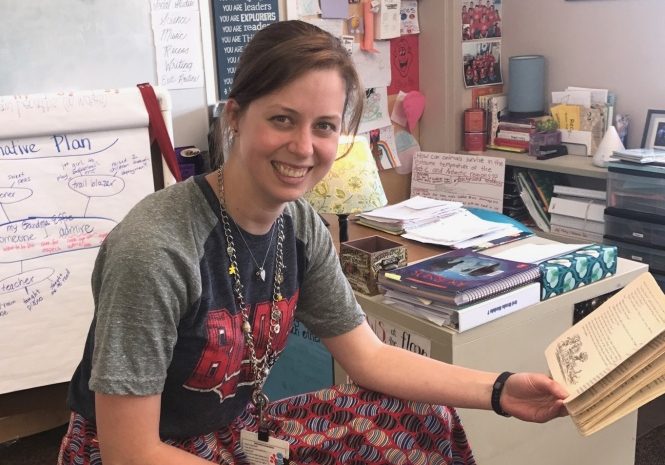- Tell us about yourself: Michaela Jones, B.Ed. in Special Education, class of 2013.
- What are you doing now? I currently teach 3rd grade at a Title I school in Spokane.
- Why did you choose a program in the School of Education at Gonzaga? When I entered Gonzaga as a freshman, I thought I wanted to be a primary science specialist, so I signed up for the elementary endorsement (majoring in biology). About two weeks into my Intro to Special Ed course, I realized that I was way more passionate about teaching neurodivergent kids than I was about science, so I switched into the Special Ed program, and have never looked back!
- What influenced you the most during your time at Gonzaga? I think the biggest influence at GU was the culture of community. Whether it was a study session that got way off-task with my Honors class, a collaborative project for a philosophy course, or helping each other figure out how to graph data for a case study in Rosauer Lab, I was always surrounded by people with different schema and life stories who pushed me to “shape up or ship out” ideas, beliefs, and habits that have made me — ready for the Zag buzzword? — the authentic citizen I aim to be every day.
- What was your greatest lesson learned at Gonzaga? Do I have to pick just one? I’d have to say that one lesson that I mastered at Gonzaga comes from the quote: “If you’re the smartest person in the room, you’re in the wrong room.” Interaction after interaction on campus – with peers, with professors, with District 81 students- knocked me down and picked me back up, better for the dust and wear. I learned to seek out the edges of and to love conquering what was outside my comfort zone. Now that I spend my days surrounded by 8 and 9 year olds, it’s a great skill to have!
- What is the most rewarding aspect of working in your field? Most challenging? In order to reply about the most rewarding and challenging aspects of teaching in Title I, I must again share someone else’s words. Benjamin Franklin once said, “Justice will not be served until those who are unaffected are as outraged as those who are.” The most rewarding aspect of working in my field is every moment a child’s face lights up with love, when they are so excited to share life with me and the belief that they MATTER shines through their story. Sometimes that moment happens over academics, sometimes it’s over basketball, chess, or a chance encounter on the way to the restroom. The injustice of just how crucial these moments are is the most challenging aspect of teaching. We work so continuously with our families and community to surround all of our children with support, and bureaucracy bowls over those efforts. It’s hard to listen to the media report that state and national politicians say there’s not enough funds for education on one hand, but that there will be millions cut further from initiatives and programs such as subsidized lunch. It shouldn’t be an outrage, a battle, to provide our children with these moments of pride and resilience, yet priorities set by those who are unaffected make it one.
- What critical issues do you see that need to be addressed in your field? The list of critical issues in education could fill pages: smaller class size, more mental health services on site, better social emotional learning, decision making that reinstates professionalism for educators, less emphasis on standardized testing… At the end of the page, though, the critical issues boil down to this: if we agreed at a bureaucratic level to train all staff in data-verified strategies for growth of the whole child, and to fund programs based on research-driven effectiveness rather than on philosophical and anecdotal theories, I think the balance of trust in education and emphasis on child-focused interactions would be restored.
- What advice do you have for future education professionals? Self-care is an ethical responsibility. Someone somewhere said that educators are candles who use themselves up to light the flames of others. It’s lies and slander and a perpetuating ethos that is a real cause for the stat that 50% of new teachers leave the field within 5 years. Know your contract rights. Take lunch without meetings. Give yourself grace- always- but work like mad the first couple of years to develop routines so you can find a place where you leave work without taking grading home every night. Save lesson plans and tasks to tweak and reuse next year. The wheel has already been invented– share with your colleagues! Weekends are a sacred time to rest. Develop relationship with your colleagues outside of shop talk. Learn a new hobby; master it, and pick up a new one. Actively participate in school functions and committees where decisions are made, but practice saying no when your plate is already balanced. Develop daily, weekly, and monthly habits of refreshment for your body. Read for fun during the school year. Say yes to adventure as it comes. Matt Haig wrote that a quark is not the smallest particle in the universe; the regret at one’s deathbed for not spending more time at work is. Children are the most important work there is. They deserve passionate and interesting adults to model a well-rounded life and guide them.

Leave a Reply